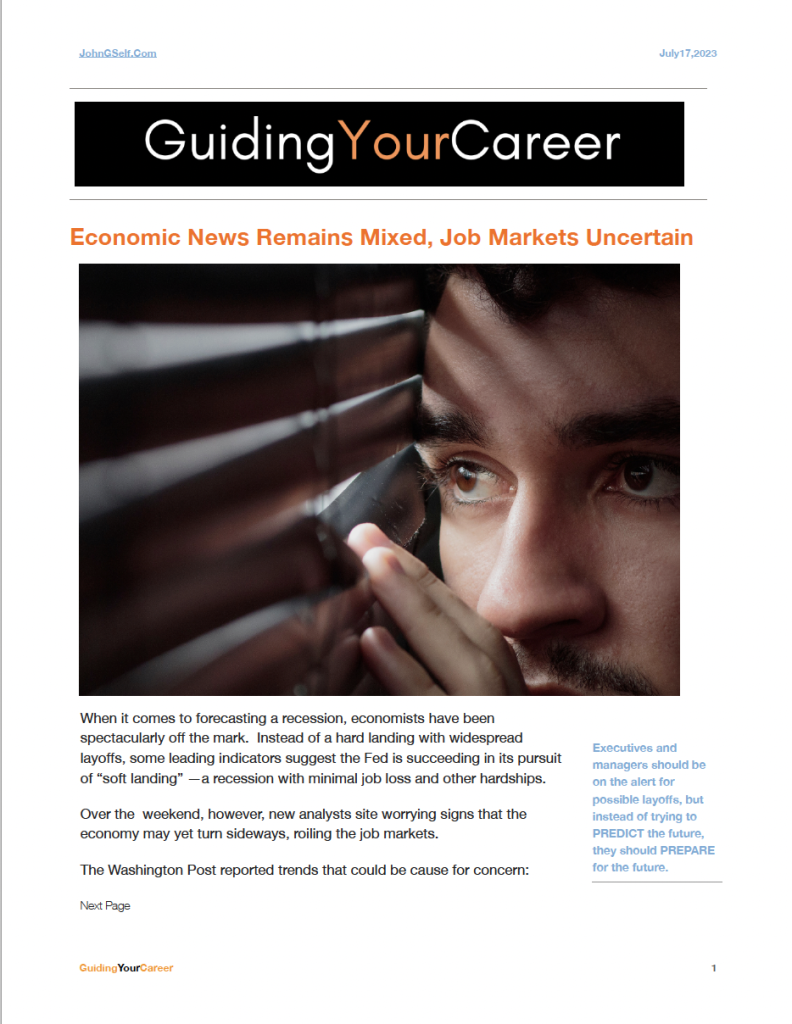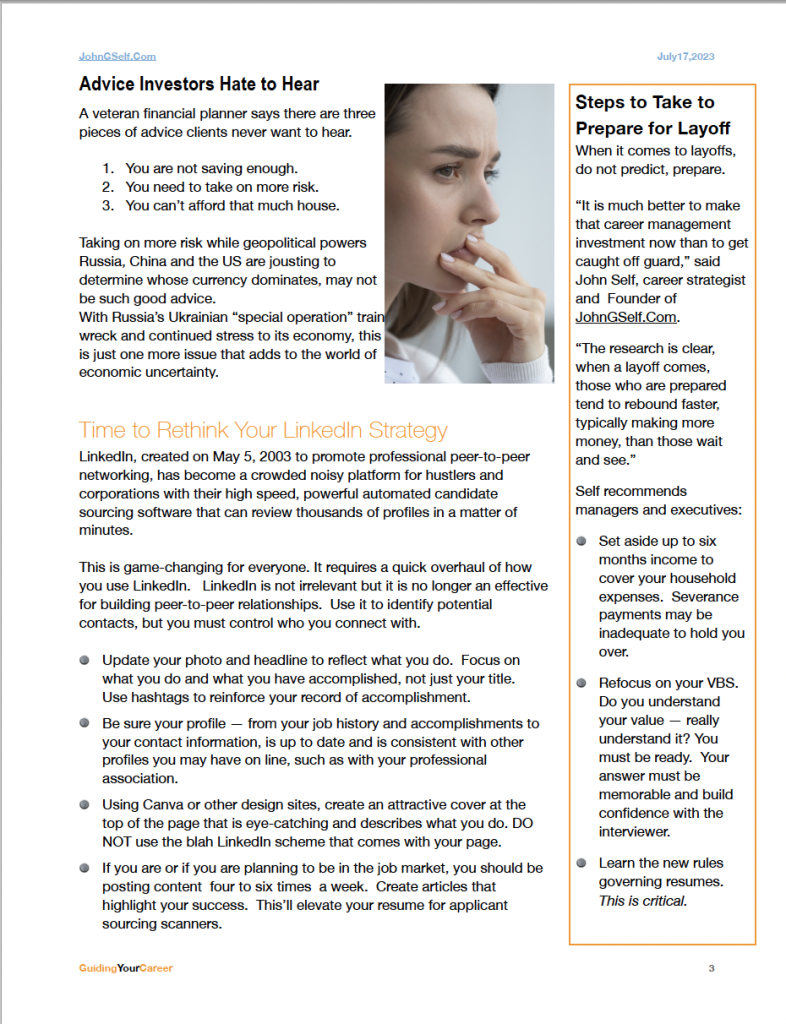How to Prepare for a Successful Job Interview
This is a commonly asked, but important, question.
It is predicated by a belief that you can’t prepare if you don’t know what questions will be asked.
Today I will share one of our great GuidingYourCareer Academy power tips to help you level up your interviewing skills.
Hello, I am John Self, a former global recruiter, and for more than 10 years I taught the course on interviewing for a global professional association. Most jobs are won or lost at the interview table.
Here are three tasks you should complete before you start the interview process: Understand your value, organize your thoughts by breaking down the job by categories, and then rehearse.
- Understand your value. This is what you will use to answer the ubiquitous first question: Tell us about yourself. Focus on your values and record of accomplishment.
- Break the Job Down Using our free downloadable CORE+CATEGORICAL Interview Preparation Form, break the job down into categories. For example human resources, operations, financial management, marketing, customer satisfaction, etc.
In each category, identify your strengths, weaknesses and include three signature accomplishments. Be prepared to address both your strengths and weaknesses.
Next, compose five to seven questions you would you ask if you were conducting the interview. Finally, develop answers for any questions you hope to heck they DON’T ask! They probably won’t, but being ready will boost your confidence and make you more self-aware
3. Rehearse. In addition to your questions from the CORE+CATEGORICAL form, practice answering commonly asked interview questions. There are dozens of books on this subject. My favorite is Brad Smart’s TopGrading, the quintessential how-to book for behavior and values interviews. His son also has a take on this subject. I have attached Amazon links in this video description. If you would like a free list of commonly asked questions, email us at info@JohnGSelf.Com
LINKS FOR BOOKS “Topgrading” Bradford Smart, PhD https://amzn.to/3Y8st9y
“WHO” by Geffrey Smart. https://amzn.to/3O1s6sM
Now, rehearsal is critical. Most people simply do not interview enough times in three years to be an expert. Rehearsal will move you up the ladder in the job search and position you ahead of your competitors, most of whom will show up unprepared. Given the incredible odds and all of the computer BOT hurdles you must overcome to get to the interview table, why would you be satisfied just winging it?
In my career, I have interviewed thousands of executives and most failed because they were not prepared for the job interview. Poor preparation and lack of self-awareness are common problems in the hiring process, so use this information to differentiate yourself from your competitors.
If you feel you need additional support, visit the GuidingYourCareer Academy at JohnGSelf.Com and check out our course, Mastering the Art of the Job Interview. Or schedule a MOCK Interview which will afford you a chance to practice your skills and receive feedback on your performance. JohNGSelf.Com, click the red ribbon on the right side of the home page.
DON’T PANIC! 10 Crucial Steps to Take After a Job Loss
Do you have a response plan if you get laid off?
Do you know what steps you should take, and what you should absolutely not do?
Here are 10 steps you should take if you lose your job.
Hi, I am John Self, a career coach, job search strategist, and someone who can help you accelerate your job search. Prior to launching our online, on-demand career platform at JohnGSelf.Com, I spent 27 years in global executive search. So, I know how the recruiting process works, and what you must do to succeed in today’s rapidly evolving job market.
Check out our videos. If you like our content, join our community by subscribing.YouTube Subscribers will earn special discounts in our new community forum, YourCareerCommunity
To Fulfill Your Career Goal, Begin at the End
You will spend 75 percent of your waking hours in your one life – not with your spouse, partner, your family, or friends.
You will spend it at work.
At some point in this journey, preferably early on, you must ask yourself, “What is my goal? What do I want to accomplish in my life?”
When it comes time for your vacation, you don’t just show up at the airport and buy a tick to anywhere.
If you don’t know where you are going you probably will end up someplace you do not want to be.
The best advice regarding how to maximize the value of your one chance at life came from Wayne Dyer, an author and motivational speaker.
“Start with the end outcome and work backward to make your dream possible.”
When it comes to building a plan for your career, it is literally just that simple.
Career Outlook: Economy, Jobs Market Uncertain



Do You Know the Secret Question for Career Networking?
Do you know you the biggest mistake people make in professional networking?
They don’t start or end a call or email with this question.
It is the foundation for building networking relationships.
(lead-in)
The biggest mistake you can make in networking is to think it is all about what you need. For most people, the only time they give networking any serious attention is when they need a new job. By then it is too late.
To succeed start every call, meeting, or digital interaction with a variation of this theme: “What can I do to help you?” If your conversation is longer than just a brief exchange, always end by asking, “Before I go, is there anything else I can do for you?”
By focusing on your contact, not yourself, you significantly increase the likelihood of developing a relationship that will refer you for employment.
